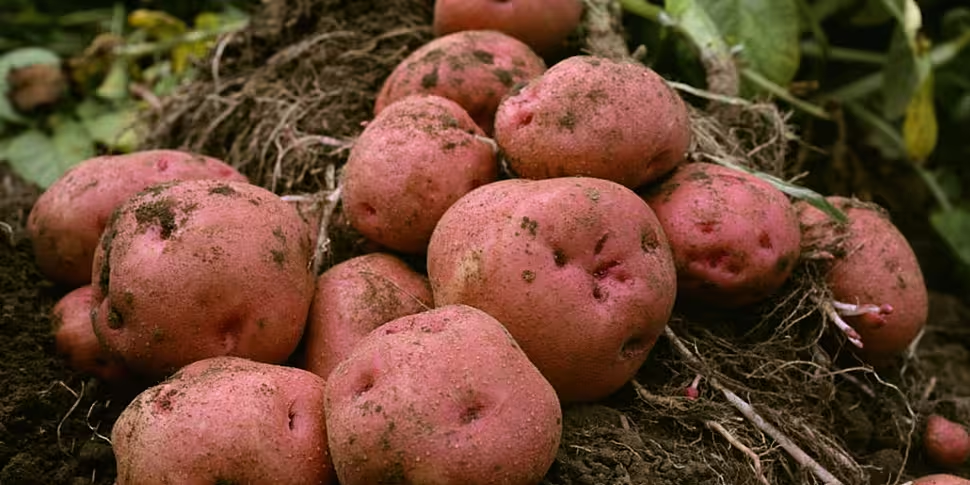The area of potatoes planted here in 2019 was the second lowest on record, the Irish Farmers' Association (IFA) has said.
This followed on from 2018, which was the lowest on record.
There was also a further decrease in the plantings of traditional varieties such as Kerr Pinks and Golden Wonders.
The figures were revealed at the National Potato Conference in Dublin on Tuesday.
Farmers and industry leaders from across the country attended the conference and trade show, which was organised by Teagasc, the IFA and Bord Bia.
IFA President Tim Cullinan claimed farmers continue to be the 'poor relation' within the supply chain.
"Growers are coming under increased pressure due to rising input and storage costs and the continued decrease of phytosanitary products available.
"That situation cannot be sustained; the price the farmer gets has to rise, just to cover storage costs alone.
"Retailers and packers have to wake up to that and act now if they want to have a potato industry in the future," he said.
The IFA wants the Government to introduce a retail ombudsman, who would have independent oversight and regulation of the sector.
Market research by Kantar Worldpanel has revealed potato consumption in Ireland has been steady over the past five years.
"Consumers are either buying more volume, or buying more often, in response to price with the total volume purchased remaining relatively constant", it said.
While research from the UK, presented by Stu Baker from the British Agriculture and Horticulture Development Board (AHDB), suggested British consumers have a greater awareness of climate change issues, which are driven by social media.
However this has not translated into significant behaviour change yet.
The conference also addressed a number of technical issues for potato growers and the industry.
"Growing and storing potatoes requires a high level of technical expertise and growers must keep abreast of these developments," said Michael Hennessy, head of crops knowledge transfer in Teagasc.
The conference heard that growers are facing the loss of a critical management tool (diquat) this year.
Shay Phelan from Teagasc brought growers through management options in the absence of this substance.
"Crop planning plays an important role in managing potato maturity at harvest and this can be combined with new management techniques to control potato haulm prior to harvest.
"Growers will have to up-skill their knowledge, and possibly incur extra machinery costs, to ensure a timely harvest while maintaining potato quality".
Energy use in the potato sector was also in focus at the conference.
"Potato farms have a large energy requirement when storing potatoes though the year in large fridges," according to Barry Caslin of Teagasc.
"There are many ways to improve efficiency in stores and using solar PV combined with battery storage can produce a significant proportion of their energy as renewable".









